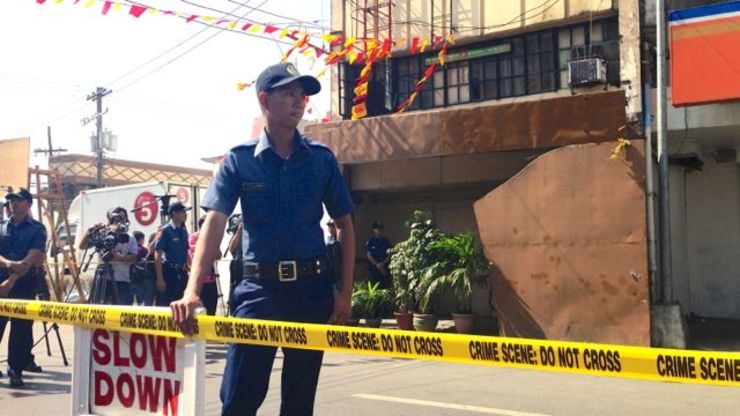SUMMARY
This is AI generated summarization, which may have errors. For context, always refer to the full article.

OLONGAPO CITY, Philippines – The Olongapo City Prosecutor’s Office has allowed the gathering of fingerprints and buccal swabs from the US Marine accused of killing Filipino transgender woman Jennifer Laude last October.
In an order dated October 29, the prosecution panel approved the omnibus motion filed by private complainant Marilou Laude, the victim’s sister, asking the panel to direct US Private First Class Joseph Scott Pemberton to present himself for fingerprinting and taking of buccal swabs.
The panel also ordered the Philippine National Police (PNP) Crime Laboratory in Camp Crame to carry out the gathering of samples for forensic analysis and DNA testing on Thursday, November 6.
In its order, prosecutors denied the opposition filed by Pemberton last October 27, in which he said the prosecutor’s office does not have the authority to grant Laude’s motion.
The panel also has no authority to compel him to appear in preliminary investigations into the murder complaint filed against him, Pemberton added.
The Olongapo City Prosecutor’s Office is conducting preliminary investigations to determine if there is prima facie evidence to charge the US soldier in court for the killing of Laude last October 11.
Witnesses said Laude was last seen checking in to Celzone Lodge with Pemberton before she was found dead in the bathroom hours later.
Forensic evidence
In his motion, Pemberton argued that he is not compelled to subject himself to DNA testing because he is neither under custodial investigation nor an accused in a court proceeding.
But prosecutors rejected the argument, saying Pemberton’s contentions are “bereft of merit.”
The panel said the rule on DNA evidence did not specify that it applies only during a custodial investigation or court proceeding. Rather, the rule applies to all criminal actions and special proceedings where DNA evidence may be utilized.
The panel also disagreed with the respondent’s argument that subjecting himself to DNA testing violates his right against self-incrimination.
Citing People vs Yatar, GR No 150224, May 19, 2004, the panel pointed out that “the right against self-incrimination is simply against the legal process of extracting from the lips of the accused an admission of guilt.”
“DNA forms part of the object evidence. Verily, there is no testimonial compulsion involved in the lifting of respondent Pemberton’s fingerprints and taking a cotton swab of skin cells from inside his cheeks for DNA testing,” the panel said.
Rejecting Pemberton’s argument of violation of privacy, the panel said the purpose of taking a DNA sample is “just to compare the same with known reference samples previously taken at the crime scene.”
Ocular inspection
Lawyer Romel Bagares, one of the Laude family’s legal counsels, welcomed the prosecutor’s order.
He said the United States government has sent a note verbale to the Philippine Department of Foreign Affairs (DFA) expressing no opposition to the forensic examination.
“For the first time, the US government agreed. We believe that this is due to public pressure. It’s an anomaly that it’s nearly a month [since the incident] but there has been no fingerprinting yet,” he said.
Two public prosecutors and 7 members of the PNP crime laboratory will be present at the examination on November 6, Bagares added.
Earlier, prosecutors conducted an ocular inspection in Ambyanz Disco Bar and Celzone Lodge – the two sites where the victim was last seen alive.
Head prosecutor Emilie Fe delos Santos refused to say how the inspection will affect the preliminary investigation on the case, but she said prosecutors were able to clarify the details provided by the witnesses.
Following the inspection at Celzone Lodge, delos Santos said prosecutors were able to ascertain if it was possible to hear noises from outside the room where Laude was found dead.
She also said the prosecution may also call on other people who were checked in at the lodge on the night of Laude’s death to “help shed light” on the incident.
Delos Santos said it will take up to 3 weeks before the prosecution panel can come up with a resolution on whether to file the case in court.
“We will take all the [testimonies of] witnesses, documentary evidence, and forensics altogether,” she added. – Rappler.com
Add a comment
How does this make you feel?
There are no comments yet. Add your comment to start the conversation.